Iran's Parliament Wants Judiciary To Look Into Rouhani's Handling Of Pandemic
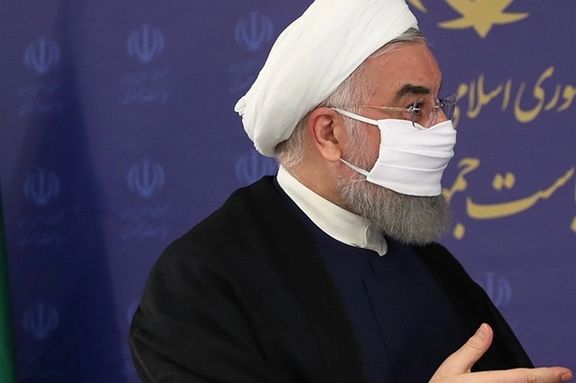
Iranian lawmakers agreed on Tuesday to send a report to the Judiciary on “Covid mismanagement” by former president Hassan Rouhani for possible legal action.

Iranian lawmakers agreed on Tuesday to send a report to the Judiciary on “Covid mismanagement” by former president Hassan Rouhani for possible legal action.
The parliament packed with hardliners was always critical of Rouhani in all aspects of governance and blamed him for the economic crisis gripping the country.
Rouhani’s defenders in the media have argued that United States sanctions are the main cause of the economic crisis and the country needed to resolve its differences over the nuclear issue with the West to be able to reduce inflation, raise wages and stimulate employment.
However, Iran’s major policy issues are decided by Supreme Leader Ali Khamenei and the president of the republic simply manages government operations.
The same applied to the Covid-19 pandemic when Khamenei banned the government from purchasing American and British vaccines in January, setting back the national vaccination plan for months.
Iran experienced a severe wave of the pandemic in July and August, with around 40,000 new deaths from June to mid-September. An increase in vaccinations since August has reduced the rate of new infections and deaths.
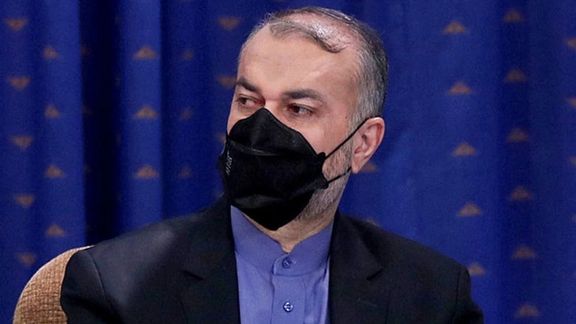
Iran’s Foreign Minister Hossein Amir-Abdollahian has tested positive for Covid-19, the foreign ministry's spokesman said late Monday.
"His general condition is good, and he continues working from quarantine," Saeed Khatibzadeh told state media late on Monday, adding that the minister's agenda of visits had changed.
The foreign minister of Iran does not take a direct part in negotiations over the resumption of the 2015 nuclear deal (JCPOA), which should resume by the end of this month, but Amir-Abdollahian has been active in shaping Iran’s negotiating position and has frequently commented on sensitive issues. It is not clear if his health can impact the resumption of talks.
Earlier on Monday, the foreign ministry announced that Amir-Abdollahian was going to India by the end of November to attend a meeting at the Indo-Iranian Joint Economic Commission.
No further indication was made by Khatibzadeh on whether the foreign minister would be able to go to New Delhi this month.
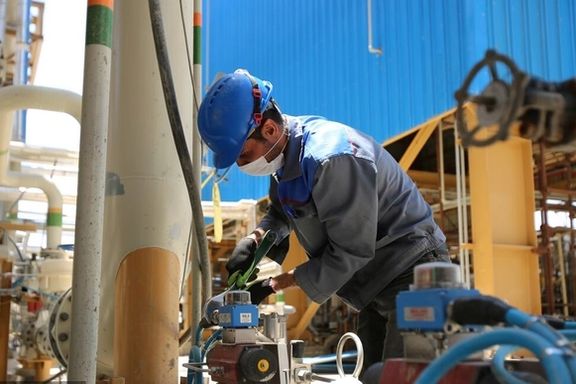
Iran needs $160 billion of investments in its oil and natural gas industries in the coming years, to avoid becoming a net importer, the oil minister has said.
Javad Owji told a budget planning meeting on Sunday that because of lack of investments in the past, the country is now faced with a stark choice – invest $160 billion in its oil and gas sector or face declining output and eventually imports of fossil fuels.
Iran’s government is in the process of drafting the budget for the next Iranian year that starts on March 21, 2022, amid a serious shortfall of revenues. In the current year the budget had a 50-percent deficit or the approximate equivalent of one year's full oil export revenues. But because of US sanctions, Iran sells much less oil and has little cash income for what it can ship in illicit ways.
The oil minster cannot hope to receive any major financing from the government given the dire financial and economic conditions. In fact, Iran failed to make the needed investments to modernize exploration and production even during the years of very high oil prices from 2005-2014, when it is estimated the country netted more than $700 billion dollars in oil revenues.
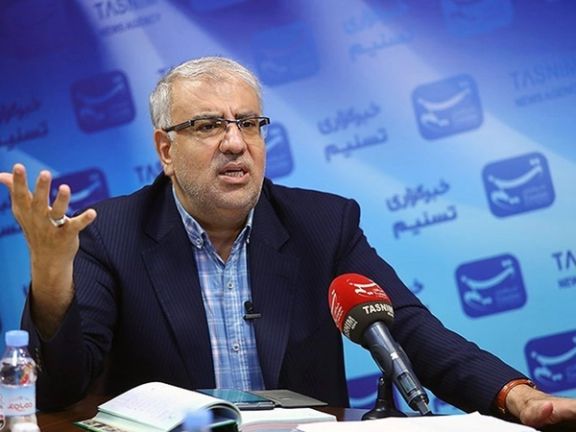
The main reason for Iran falling behind is its closed political and economic system, which is not conducive to foreign investments, cooperation and technology transfers. Iran’s constant confrontation with the West and disputes over its nuclear program that had secret elements prompting alarm, left the oil industry in isolation.
The clerical regime, increasingly dependent on the will of its Supreme Leader Ali Khamenei also has a strong inward-looking and anti-Western ideology.
Mohsen Khojastepur, general director of the Iranian national oil company said last week that if investments in the gas industry are not secured Iran will become a net importer in the coming years.
Iranian officials have been warning of inadequate natural gas production that cannot keep pace with consumption this winter and have warned people of widespread blackouts.
Fararu news website in Tehran has confirmed that the natural gas crisis is the result of insufficient investments and lack of technology that only a handful of Western energy giants can provide. Just to maintain current production, Iran needs to invest up to $50 billion in its gas fields, especially in the Persian Gulf offshore South Pars reserves shared with Qatar.
It will not be easy for Iran to make up for the lost time. Even if there is an agreement in nuclear talks, US sanctions are lifted and Iran’s oil exports reach 2.5 million barrels a day, with current prices it can hope to have gross export revenues of around $65 billion annually. But lack of efficient planning and management in addition to years of sanctions have left a very big economic hole in the country, which would takes years to fill.
One more factor can also contribute to Iran becoming a net energy importer – rampant consumption because of huge energy subsidies the government provides, estimated to be around $45 billion a year. Both electricity and fossil fuels are heavily subsidized, which encourage wasteful consumption. Gasoline is now sold at around 20-40 US cents a gallon, to give an example.
This has gone on for decades and it is a risky political proposition for the government to eliminate the subsidies. When it raised prices to the current level from even a lower price two years ago, nationwide unrest broke out and security forces using military ammunition killed hundreds of protesters, destroying the last vestiges of the regime’s legitimacy.
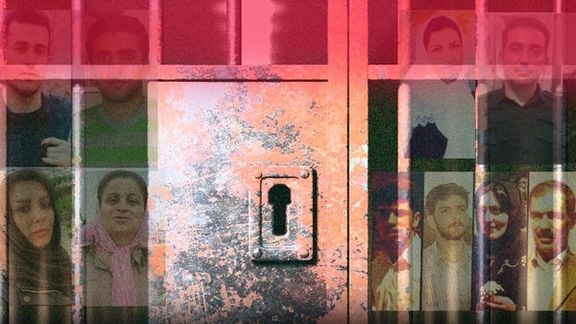
A Kurdish NGO has described widespread torture carried out in Revolutionary Guards and intelligence ministry secret detention centers in Kurdish areas of Iran.
In its report last week based on interviews with former detainees, France-based Kurdistan Human Rights Network (KHRN), a non-governmental organization (NGO) focused on Iran's Kurdish areas, alleged that torture like attaching weights to testicles, hanging detainees from the ceiling, and beating them with hoses and cables was “prevalent.”
The KHRN cited an intelligence ministry detention center in Orumiyeh, West Azarbaijan province, and two IRGC centers in Orumiyeh and Sanandaj, both in Kurdistan province. It said one detention center had very small cells known as graves.
The ex-detainees told KHRN that interrogators had used threats − including raping the detainees' families − to extract confessions. One detainee, who said he had been held at the IRGC detention center in Sanandaj, told KHRN that he was not taken to hospital for 29 days despite having been shot in the leg. Detainees also said interrogators also staged fake executions to encourage confessions.
Former Kurdish political prisoner Mohammad-Hossein Rezaei, who spent time at the intelligence ministry's Sanandaj detention center, told KHRN that he had been tied to a table and beaten with cables, damaging his nose and ribs.
Roya Toloui, a Kurdish journalist and civil rights activist now living in the US has claimed that after her arrest in 2006 she was tortured and raped in at intelligence ministry detention center of Sanandaj for refusing to put her signature on confessions that had been written by her interrogators.
The report said the IRGC intelligence in West Azerbaijan province had the capacity to detain several hundred.
Several illegal Kurdish parties seeking either Kurdish autonomy within a federal Iran or an independent state are active in Iran’s Kurdish regions. Iranian military commanders have issued repeated warning in recent months they will strike the bases of these groups in Kurdish-held northern Iraq.
While conditions in jails in Kurdish regions are generally harsher than elsewhere, there has been some international interest in Iranian prison conditions since the release in August by hackers of footage from security cameras that had been installed in Evin prison, Tehran, at the instruction of parliament. Mohammad-Mehdi Haj-Mohammadi, the head of Iran's Prisons Organization, apologized and said action would be taken against staff mistreating prisoners.
In a series of tweets in September, activist-cum-citizens’ journalist Sepideh Gholian (Qolian), out on parole from Bushehr prison, southern Iran, alleged abuse of female prisoners in the prison. She wrote that she had reported 20 cases to the authorities, including five described in her tweets, but had received no response.
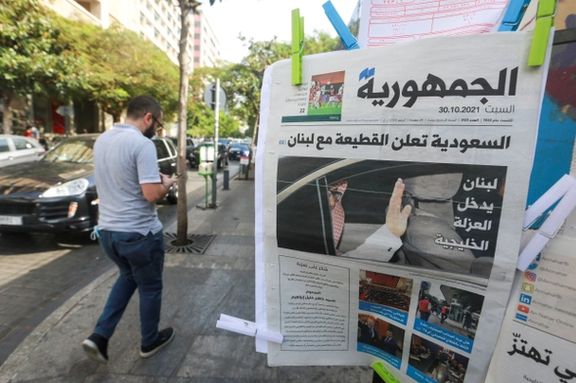
Conservative and pro-IRGC media in Iran have condemned Saudi Arabia’s tough response to critical remarks by a Lebanese government minister.
Amid talks with Riyadh, Tehran media controlled by the state or by the Revolutionary Guard see Saudi Arabia’s decision to expel the Lebanese ambassador as an assault at Hezbollah’s sway in Lebaese politics.
Alef, a conservative website said Monday that Saudi Arabia’s ambassador in Beirut refrained from even congratulating the formation of the new government after Saad Hariri, Riyadh’s preferred candidate for prime minister failed in his bid to form a cabinet. The paper reasoned that Saudis are angry at Hezbollah for having succeeded in putting together a government.
Saudi Arabia expelled Lebanon's envoy and banned all Lebanese imports on Friday, and Bahrain and Kuwait followed suit, giving the top Lebanese diplomats 48 hours to exit. The United Arab Emirates later said it would withdraw all its diplomats and banned its citizens from traveling to Lebanon.
The crisis began when a in a program taped in August, a current minister in the Lebanese government, George Kordahi, criticized Saudi Arabia’s involvement in Yemen’s war, calling it an aggression. Kordahi refused to resign his cabinet post, saying he did not mean any disrespect to Saudi Arabia.
The Saudi Foreign Minister Prince Faisal bin Farhan Al Saud in an interview with Reuters on Saturday acknowledged that the issue with Lebanon is the power and influence Hezbollah exercises.
"I think the issue is far broader than the current situation," bin said. "I think it's important that the government in Lebanon or the Lebanese establishment forges a path forward that frees Lebanon from the current political construct, which reinforces the dominance of Hezbollah."
The IRGC-affiliated Fars news agency in Tehran wrote harshly about the Saudi response on Monday. “This kind of incidents rarely happen in the diplomatic world, and we can say it is consistent with the interventionist and dominance-seeking nature of the Saudis.”
Fars quoted foreign minister bin Farahan’s interview and says that Riyadh candidly has explained why “it has gone to war against Lebanon”. The reason, Fars said, is Hezbollah and Saudi Arabia’s belief that Lebanon will not accommodate Saudi policies as long as the Shiite organization sways any influence. Fars went on to say that Riyadh has experienced repeated defeats in the region. They see Yemen “as lost”, while they also lost in their bid to pressure Qatar.
Fars went as far as saying that Qatar withstood a Saudi boycott thanks to help it received from Iran and Turkey. It added that Hezbollah will never be “eliminated” from the Lebanese political life.
The incident with the Lebanese minister, Saudi Arabia’s sensitivity in the matter and Iran’s claims of victory show how far the two regional rivals are from reaching a mutual understanding in their talks.
Iran wants to continue the talks to prevent Western demands of discussing its regional policies alongside nuclear talks. Saudi Arabia continues the talks to show good faith to the Biden Administration that probably is keen to entangle the complicated web of issues related to Iran and make a nuclear deal simpler to achieve.
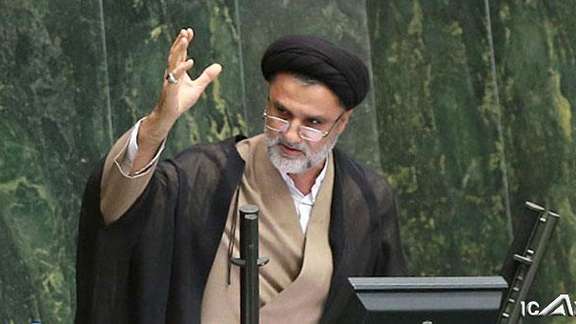
Iran has expanded it borders to Syria, Lebanon and Yemen, a senior lawmaker in Iran’s parliament has said, rejecting any talks with the West over the issue.
Mahmoud Nabavian, a cleric and a hardliner politician representing a constituency near Tehran told a local website that while the United States has forces in the Persian Gulf, “We should not remain within our borders”.
He added that the reason “enemies cannot make Iran insecure is that we have expanded our borders and now Iran’s borders are in Syria, Lebanon, Yemen and Iraq.” He rejected Western demands that Iran should negotiate over its role in the Middle East, arguing that “They want to take the region from us.”
Nabavian also dismissed another Western demand that Iran should discuss its ballistic missile issue. “They want to take our missile power from us so we will have nothing if enemies attack us.” The ultraconservative lawmaker went on to say that Iran should never agree to negotiate with the West over its regional policies and missile power.
Predictably, Nabavian also dismissed negotiations over Iran’s nuclear program, saying that the 2015 nuclear deal (JCPOA) brought no benefits for Tehran. He said the issue is not just sanctions imposed by former US president Donald Trump, but the same anti-Iran agenda was pursued by the Obama administration.